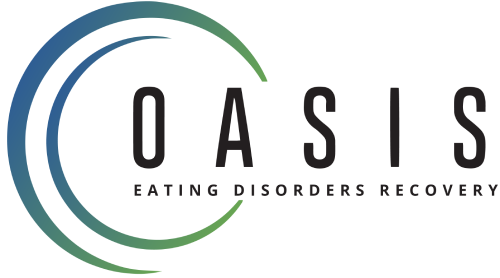Eating disorders are serious conditions that affect a person’s physical and emotional health. If you suspect that someone you know may be suffering from an eating disorder, it’s important to know the signs and symptoms to look out for.
In this article, we’ll explore some key indicators that someone may be struggling with an eating disorder and some tips for approaching the topic with sensitivity and care.
What is an Eating Disorder?
Eating disorders are mental health conditions characterized by abnormal eating habits and a lack of proper nutrition. These disorders often involve a preoccupation with food, body weight, and appearance and can lead to severe disturbances in eating behaviors.
Common Eating Disorders
There are many types of eating disorders, but they all share some common signs and symptoms. Let’s take a look at the most common ones:
1) Bulimia Nervosa
- It involves a cycle of binge eating followed by compensatory behaviors, such as purging
- Commonly associated with feelings of guilt and shame related to eating
- This can result in serious health problems, including electrolyte imbalances and heart issues
2) Anorexia Nervosa
- Characterized by an extreme fear of becoming overweight and a distorted body image
- Involves excessively limiting food intake or engaging in extreme or unhealthy exercise
- This can lead to severe health complications, including death
3) Binge Eating Disorder
- Uncontrolled episodes of excessive eating
- Often followed by feelings of guilt, shame, and embarrassment
- This can lead to health complications, including obesity, diabetes, and heart disease
4) Avoidant/Restrictive Food Intake Disorder
- Avoidance of food due to a lack of interest in eating
- Restriction of food due to fear of particular textures, flavors, or smells
- Can cause malnutrition and poor growth in children
5) Other Specified Feeding or Eating Disorder
- Involves disordered eating behaviors that do not fit into one of the other eating disorder categories
- Can binge purging, or restriction of food intake
- This can lead to serious health issues, including malnutrition and dehydration
Signs and Symptoms of an Eating Disorder
Eating disorders are serious mental illnesses that cause significant physical, emotional, and social problems.
- Obsessive concern with body weight, shape, and appearance
- Constantly comparing oneself to others in terms of weight and appearance
- Refusal to eat certain foods or food groups
- Intense fear of gaining weight, even if underweight
- Frequently skipping meals or engaging in strict dieting
- Binge eating or consuming large amounts of food in a short period
- Purging behaviors, such as self-induced vomiting or abusing laxatives
- Using diet pills or other weight loss supplements
- Excessive exercise, even when injured or tired
- Withdrawing from social activities or events that involve food
- Feeling guilty or ashamed after eating
- Mood swings, irritability, or depression
- Difficulty concentrating or focusing
- Physical signs, such as rapid weight loss, fatigue, or dizziness
How to Get Help for an Eating Disorder
Eating disorders are serious mental health conditions that can have devastating effects on both physical and emotional health. However, with the right support and treatment, recovery is possible. Here are some steps you can take to get help for an eating disorder:
- Recognize the Signs and Symptoms: Eating disorders come in different forms, and symptoms can vary from person to person. Common signs of an eating disorder include obsessive thoughts about food, body image issues, rapid weight loss or gain, and secretive behaviors around food.
- Seek Professional Help: Eating disorders are complex conditions that require professional treatment. Many healthcare providers can help, including therapists, dietitians, and medical doctors. Your primary care physician can refer you to a specialist who can treat you appropriately.
- Consider Different Types of Treatment: There are many different types of treatment for eating disorders, including psychotherapy, medication, and nutritional counseling. The kind of treatment that’s right for you will depend on your individual needs and the severity of your condition.
Conclusion
Recognizing the signs and symptoms is important because they can help determine if you have an eating disorder. You should also know that many treatment options are available, including therapy and medication. If you or someone you know has an eating disorder, seeking help is essential.
At Oasis Eating Disorders Recovery Center, we provide a safe and supportive environment for you to recover. We have therapists and medical experts trained to treat all eating disorders.

